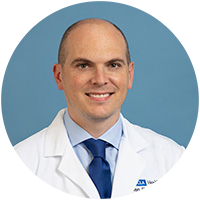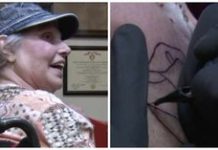This post was first published on The ASCO Post, March 25, 2023. It has been edited for content. The ASCO Post, in partnership with the American Society of Clinical Oncology (ASCO), communicates news of evidence-based multidisciplinary cancer care to a broad audience of oncology professionals and ASCO members.
Alexandra Vitale is a von Hippel-Lindau syndrome survivor living in Townsend, Delaware.
Von Hippel-Lindau (VHL) disease has been with me since I was 5 years old, when a benign tumor was found on the optic nerve of my left eye, leaving me blind in that eye. But I didn’t get an official diagnosis of the disease until 2011, when I was 20. By then, it was like a light switch had turned on, and I began developing tumors in my central nervous system, endocrine system, kidneys, and brain. The pace of the growth of new tumors was relentless. Each time I went in for an imaging scan every 3 to 6 months, another new tumor was detected.
By 2011, I was having surgeries in quick succession. The most intense surgery by then was an adrenalectomy to remove benign growths on my adrenal glands. Then, in 2015, I was diagnosed with renal cell carcinoma, a type of kidney cancer, and in 2016, I was diagnosed with pancreatic neuroendocrine carcinoma.
These years were probably the hardest for me emotionally because it was the first time the word “cancer” was used to describe the tumors. The surgeries to extract the cancers, a Whipple procedure to remove the neuroendocrine tumors, and a partial nephrectomy to remove the tumors in my kidney, were also extremely difficult to recover from physically.
Rolling with the punches
Prior to undergoing these surgeries, an imaging scan detected yet another tumor. This time, it was on my cerebellum, the lower back part of the brain. “I wouldn’t be surprised if we have to do something about that tumor in the coming year,” my surgeon said. To avoid becoming overwhelmed by the seemingly endless development of tumors throughout my body, I decided to focus on the surgeries in front of me and deal with the others later. In December 2016, I had the Whipple and nephrectomy procedures. Then, 8 months later, I had brain surgery to remove the tumor in my cerebellum, which had begun pushing against my spinal cord, affecting my coordination. Fortunately, that tumor was benign.
Although these tumors were found and removed before they could become life-threatening, the toll they were taking on my mental health was crushing. Every time I had to have a new magnetic resonance imaging (MRI) scan or a meeting with my physician, I was filled with fear. But I decided to just roll with the punches. What else could I do?
Staying free of new tumors
In 2018, another tumor cropped up on one of my kidneys. This made me eligible to participate in a clinical trial investigating belzutifan (Welireg), a medication that targets hypoxia-inducible factor-2 alpha (HIF2a) in people with VHL-associated renal cell carcinoma. In people with VHL, HIF2a activates more than 100 critical targets that contribute to tumor growth. The drug has been successful in shrinking my tumor and stabilizing it, so I most likely will not have to have additional surgery to remove it.
Remarkably, I haven’t had any new tumors develop since I’ve been on belzutifan. I’m still enrolled in the clinical trial and most likely will have to remain on this therapy indefinitely.

“VHL disease is a challenging condition that impacts a wide range of organs with manifestations that include both benign and malignant tumors. Both the disease and the associated morbidity from effective treatment can impact patients’ quality and quantity of life. Belzutifan, a well-tolerated systemic treatment, is a major addition to the field, as it may help delay or avoid surgery when a tumor is present but does not need immediate treatment.” – Brian Shuch, MD, director of the Kidney Cancer Program and the Alvin & Carrie Meinhardt Endowed Chair in Kidney Cancer Research at UCLA Health and a 2023 Cancer.Net Specialty Editor for Genitourinary Cancer
Remaining hopeful about the future
I haven’t known a life without VHL, and I’ve learned to live with that fact. But it has definitely colored how I approach each day. Cancer has a way of making you prioritize your goals in life and helping you figure out what is most important to you. I stave off depression by telling myself that tomorrow is not a promised day, and I don’t want to waste time ruminating over circumstances I can’t change. I have to fight every day for my life and keep moving forward. There is no other way to survive this disease. Pain and stress are just reminders to me that I’m still alive.
Since the development of belzutifan, I have never had so much hope for myself and for other survivors of VHL. I’m only 31, and although I know I will never be rid of the effects of the disease, I’m optimistic that research advances will bring us closer to more effective therapies—and maybe even a cure—by the time I’m in my 40s or 50s.
And I’m willing to do my part. Being enrolled in this clinical trial has given me a strong appreciation for research, and I am willing to dedicate myself if it will help others with this disease or help to find cures for other cancers. I want oncologists and researchers to know that what they do every day to help people like me is making a difference in our lives.
For my entire life, my mantra has been to stay positive and continue to move forward. Honestly, it’s a message everyone can benefit from, whether you have cancer or not.







